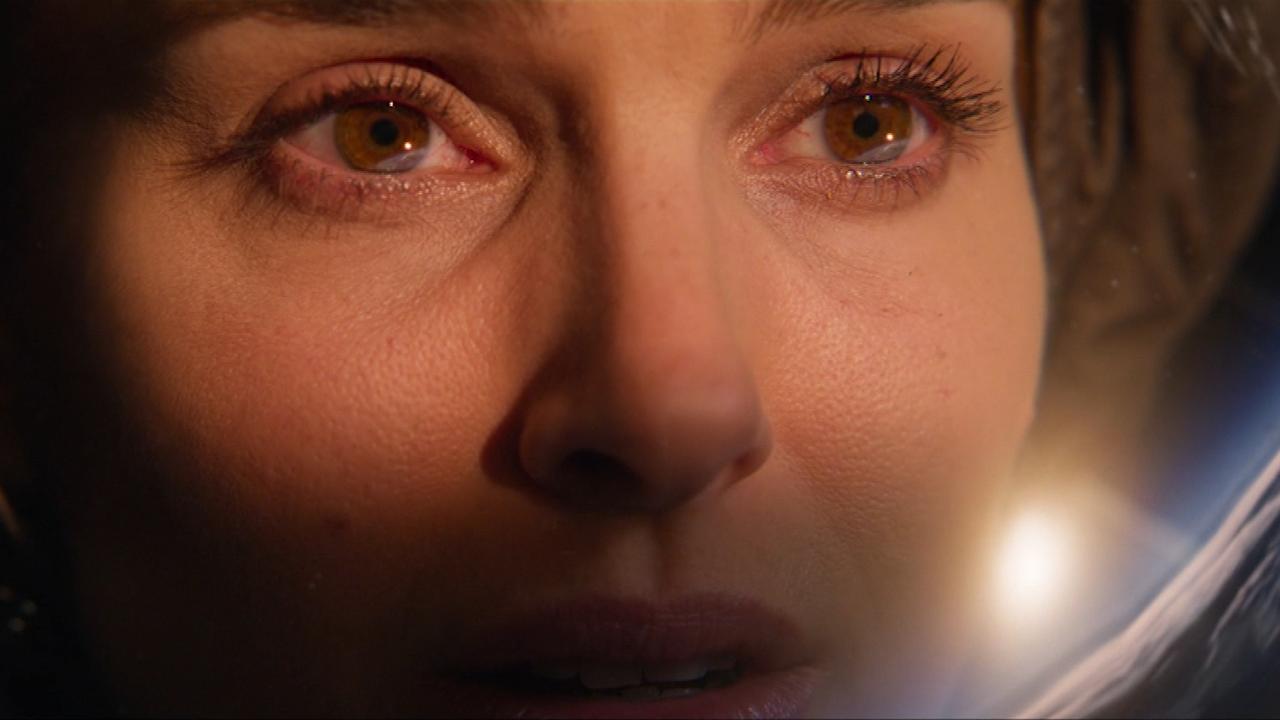by Chris Feil
Fargo and Legion’s Noah Hawley makes his big screen directorial leap with Lucy in the Sky, a loosely transcribed true story stripped of its sensationalism. But despite this diaperless retelling of the infamous story of an earthbound astronaut’s struggles with mental illness and her eventual attempt on her lover’s life, Hawley still flattens the drama for this would-be intense character study. Even with Natalie Portman at its forefront, doing another of her signature bold, safety-net-free characterizations, Hawley’s more pseudo-humane vision is defined by its inertia. It’s too boring to be embarrassing...

Lucy Cola’s breakdown happens in stages, beginning with her initial readjustments to the mundanity of life on the ground. Dan Stevens play her dull, dutiful husband, whose patience and consideration registers to Lucy as useless, distancing platitudes. Meanwhile, she cares for her drunken matriarch (Ellen Burstyn) and a teenage niece Blue Iris (Pearl Amanda Dickson) left behind by a deadbeat brother, the spectre of family troubles forever hovering around her. The space program proved to be not only an unmatchable glory outsized to her difficult past, but an escape from all her life’s ailments. When she begins an affair with a fellow astronaut (Jon Hamm) as she attempts to earn a competitive spot on a new mission, her depression becomes displaced into the relationship with dissociative personal consequences.
The film is seldom the cringefest it initially sets itself up to become, beyond some of Burstyn’s droll slurrings about the after-effects of “astronaut dick” and a late one-way argument with Rosetta Stone. No, the dominant trait of the film is emptiness, with its few observations about Lucy’s inner life and slow (but not methodical) build ultimately serving little payoff. Even when it’s handsomely made, Lucy in the Sky is just hollow.

If Hawley was attempting a more empathic portrait of this particular story defined by its more shocking elements, he mostly misses the mark by still making a fairly reductive depiction of mental illness. While Lucy may not be the most forthcoming or expressive protagonist, the film’s screenplay (revised by Hawley from an earlier script by Elliott DiGuiseppi and Brian C. Brown) struggles to find moments that ask more than blankness or fantasy from her. Her competitiveness is cliched, her flirtations unmotivated, her psychosis detailed as broadly as possible.
That lack of nuance is equally matched by the film’s visual aesthetics, constantly shifting aspect ratios as its one idea to convey a sense of mental claustrophobia. The film is an entry level example of the difference between showing and telling, leaving neither trust for the audience to understand her descent nor the actress who portrays it. Portman isn’t at sea in the least, but her performance feels cut off at the knees, with Hawley’s skin-deep interests confining Portman’s ability to take massive risks. There is perhaps something more minutely refined in Portman’s pinched posture, but the film gathers no excitement for anything she is doing.
The film is ultimately a character piece uninterested in really creating a living, breathing person in which to observe. Hawley may aim to illuminate the progression Lucy’s mental state, but all he actually does is shout “ain’t this lady crazy?”. C-